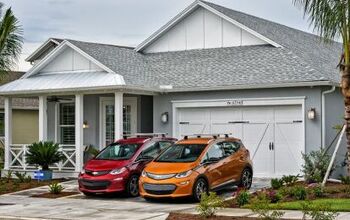Are Electric Cars Really Helping the Environment?
A recent study by the Keck School of Medicine of USC provides new insights into the potential benefits of electric vehicle (EV) adoption. The research, published in the Science of the Total Environment journal, presents the first real-world data linking EVs to reductions in air pollution and respiratory issues. This study marks a significant step in understanding the impact of electric cars on public health and the environment.
Understanding the Impact: Research Methodology
The researchers used multiple data sources to conduct their analysis. They gathered information on the total number of zero-emission vehicles (ZEVs), which include battery electric, plug-in hybrid, and hydrogen fuel cell cars, from the California Department of Motor Vehicles. The team also analyzed air pollution levels, focusing on nitrogen dioxide (NO2), and the rates of asthma-related emergency room visits across various California zip codes from 2013 to 2019.
Findings: Reduced Pollution and Health Risks
The results revealed a clear pattern: As the adoption of ZEVs increased within a zip code, there was a notable decline in local air pollution and asthma-related emergency room visits. Specifically, for every additional 20 ZEVs per 1,000 people, there was a 3.2 percent reduction in the rate of asthma-related emergency visits. Furthermore, the study showed a modest decrease in NO2 levels, a pollutant closely linked to traffic emissions.
Socioeconomic Disparities in ZEV Adoption
However, the study uncovered an adoption gap in ZEVs, with slower uptake in lower-resource areas. This gap highlights a need for policies that promote equitable access to clean transportation, particularly in communities disproportionately affected by pollution and related health issues.
Future Research and Broader Implications
While the study's findings are promising, the researchers acknowledge that more investigation is needed. Future research should explore additional pollutants, other vehicle classes, and broader environmental impacts of ZEVs, including the emissions from their production and disposal.
Conclusion
The study by the Keck School of Medicine of USC offers another case for the adoption of electric vehicles, not just for environmental reasons but also for public health benefits. It underscores the importance of considering local actions in the global fight against climate change and highlights the potential for significant health improvements through technological advancements in transportation.
This article was co-written using AI and was then heavily edited and optimized by our editorial team.
More by TTAC Staff
Latest Car Reviews
Read moreLatest Product Reviews
Read moreRecent Comments
- Syke Looking forward to where this goes. I'll admit, I do get a chuckle that the Koreans seem to have figured out how to phase in EV's while American manufacturers don't have a clue. Definitely looking at their products when I'm due to trade on my next one.
- Tassos THIS IS VERY PromisinG FOR BOTH BRANDS. These will be driven by SERIOUS PEOPLE ™️
- Bullnuke I owned an '86 short body Astro purchased new. Mine was an odd one; base model with mid-level interior trim and a 5 MT with the 4.3 V6. The placement of the shift lever was pretty far back and was at times a shoulder killer. It was a special order that someone didn't want with cruise but no tilt wheel, oil cooler, and heavy tint on the windows. It was fine and a favorite of mine (except for the position of the shift lever). Years later I found out what a death trap these were.
- Bd2 A perfect match for 2 highly innovative, renowned companies. Negativity is from those who do not meet the Genesis Client requirements of education, affluence and household income for they are jealous.
- FreedMike I think we're going to see a lot more of this sort of tech sharing / selling.


































Comments
Join the conversation